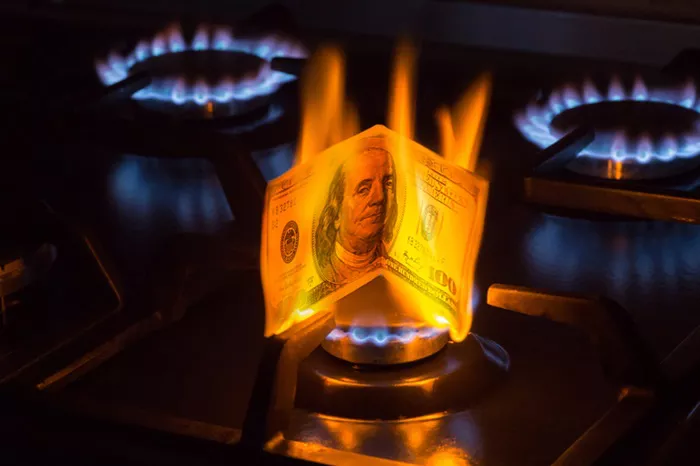Natural gas is a vital energy source used for heating, electricity generation, and as a raw material in various industrial processes. Its price can significantly affect economies and households worldwide. This article explores the reasons behind the high cost of natural gas, analyzing factors like supply and demand dynamics, geopolitical influences, infrastructural constraints, and market speculations.
Understanding Natural Gas Pricing
To comprehend why natural gas is expensive, we must first understand how its pricing works. Natural gas prices are influenced by the following elements:
Supply and Demand
Production Levels: The amount of natural gas extracted and processed plays a significant role in determining its price. When production is low, prices tend to increase, and vice versa.
Seasonal Variations: Demand for natural gas is highly seasonal, with higher demand in the winter months due to heating needs, which often results in higher prices.
Global Economic Activity: Economic growth can drive up natural gas demand as industries and households increase consumption, affecting prices accordingly.
Geopolitical Factors
International Relations: Political tensions, particularly in major gas-producing regions, can lead to supply disruptions, pushing prices higher.
Trade Policies: Tariffs, sanctions, and trade agreements can also influence natural gas prices by affecting the supply chain and export-import dynamics.
Infrastructure and Transportation
Pipeline Capacity: Limited pipeline capacity can restrict the flow of natural gas, leading to supply bottlenecks and higher prices in certain regions.
LNG Export Facilities: Liquefied Natural Gas (LNG) requires specialized facilities for processing and export. The availability and capacity of these facilities can impact prices.
Market Speculation and Trading
Futures Market: Natural gas is traded on futures markets, where traders speculate on future prices. This speculation can lead to price volatility.
Hedging Activities: Companies and investors engage in hedging activities to manage price risks, which can also influence natural gas prices.
The Impact of Supply and Demand on Natural Gas Prices
Supply and demand are fundamental to natural gas pricing. Let’s delve deeper into how these factors affect prices.
Production and Extraction
Natural gas production depends on factors like:
Resource Availability: The availability of natural gas reserves directly impacts the production levels. Regions with abundant reserves typically have lower production costs and can influence global prices.
Technological Advancements: Advances in extraction and production technology, such as hydraulic fracturing (fracking), can increase supply and reduce prices.
Regulatory Environment: Regulations and policies can either facilitate or hinder natural gas production. Strict environmental regulations may limit production, thereby increasing prices.
Consumption Patterns
The demand for natural gas varies depending on:
Weather Conditions: Cold winters increase the demand for natural gas for heating purposes, leading to higher prices. Conversely, mild winters can reduce demand and lower prices.
Industrial Usage: Industries such as chemical manufacturing, fertilizers, and power generation are significant consumers of natural gas. An increase in industrial activity can drive up prices.
Residential and Commercial Usage: Residential and commercial sectors also significantly consume natural gas for heating and cooking. Changes in these sectors’ consumption patterns can impact prices.
See also: What Is Natural Gasoline? [Revealed]
Geopolitical Influences on Natural Gas Prices
Geopolitical factors can have a profound impact on natural gas prices. Here’s how:
Political Tensions and Conflicts
Political tensions in gas-producing regions, such as the Middle East, Russia, and North Africa, can lead to supply disruptions. These disruptions can cause a spike in natural gas prices due to reduced availability.
OPEC and Gas Exporting Countries Forum (GECF): Organizations like OPEC and GECF can influence natural gas prices through coordinated production cuts or increases.
Sanctions and Embargoes: Sanctions imposed on major gas-producing countries can restrict supply and drive up prices.
Global Trade Dynamics
Trade Agreements: Trade agreements between countries can impact natural gas prices by facilitating or restricting the flow of gas across borders.
Currency Fluctuations: Natural gas is traded in global markets, often in U.S. dollars. Currency fluctuations can affect the purchasing power of importing countries and influence prices.
Infrastructure and Transportation Challenges
The infrastructure required for natural gas production, processing, and transportation can also affect prices. Key factors include:
Pipeline Networks
Capacity Constraints: Limited pipeline capacity can lead to supply bottlenecks, especially during peak demand periods, causing price spikes.
Aging Infrastructure: Aging pipeline networks may require significant maintenance and upgrades, leading to increased costs and potentially higher prices.
LNG Export Facilities
Liquefied Natural Gas (LNG) export facilities are crucial for transporting natural gas across long distances, especially to regions without direct pipeline access.
Capacity and Availability: The availability and capacity of LNG export facilities can impact prices, particularly in regions reliant on imported LNG.
Transportation Costs: Shipping LNG across long distances incurs significant transportation costs, which can affect prices.
Market Speculation and Trading Dynamics
Natural gas prices are also influenced by market speculation and trading activities. Here’s how:
Futures Market and Speculation
Price Volatility: The futures market allows traders to speculate on future natural gas prices. This speculation can lead to price volatility, especially in response to geopolitical events or changes in supply and demand dynamics.
Risk Management: Companies and investors use futures contracts to hedge against price risks. These hedging activities can influence prices, especially when large volumes are traded.
Trading Strategies
Arbitrage Opportunities: Traders may exploit price differences between different markets or delivery points, impacting prices in those markets.
Liquidity and Market Depth: The liquidity and depth of natural gas markets can affect prices, especially during periods of high trading activity.
Conclusion
Understanding why natural gas is so expensive requires a comprehensive analysis of multiple factors, including supply and demand dynamics, geopolitical influences, infrastructural constraints, and market speculations. Each of these factors can significantly impact natural gas prices, either individually or in combination. By recognizing these influences, policymakers, industry stakeholders, and consumers can better navigate the complexities of the natural gas market and make informed decisions. As the global energy landscape evolves, monitoring these factors will be crucial in anticipating and managing future price fluctuations.
Related topic:
Natural Gas Vs. Coal: Which Is Cleaner?

